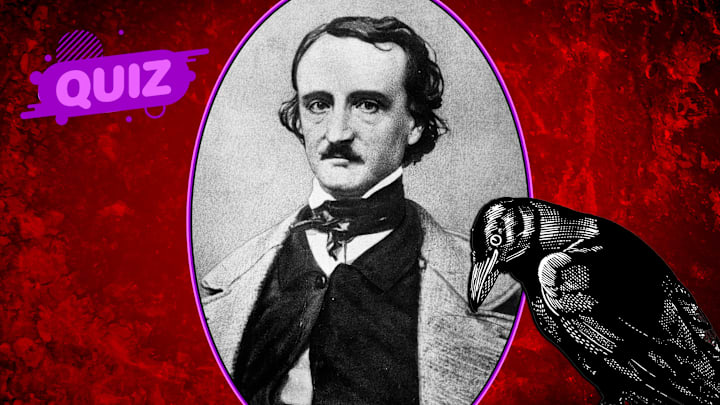Edgar Allan Poe published dozens of short stories in his relatively brief life. His first, the Gothic pastiche “Metzengerstein,” was submitted to a writing contest sponsored by the Philadelphia Saturday Courier. It didn’t win, but the editors saw enough promise in his narrative to publish it on January 14, 1832—and kick off Poe’s run as one of America’s most original and innovative writers.
Poe published hundreds of short stories, essays, poems, newspaper articles, and even a book on conchology. His best-known works, including the poems “The Raven” and “The Bells,” and stories like “The Tell-Tale Heart” and “The Fall of the House of Usher,” introduced readers to many of the themes that would perfuse his fiction. He explored the conflicts between science and superstition, the depths of human psychology, interpretations of love and death, and other metaphysical questions like a literary wanderer gazing into the sea of fog.
You May Also Like:
- Watch 10 Celebrities Read Edgar Allan Poe’s “The Raven”
- When Edgar Allan Poe Pranked New York City—And Inspired Jules Verne
- 13 Authors Whose Deaths Were Stranger Than Fiction
Add Mental Floss as a preferred news source!
For such a prolific writer, Poe produced only one novel, The Narrative of Arthur Gordon Pym of Nantucket. Predating the publication of Moby-Dick by 13 years, The Narrative of Arthur Gordon Pym tells the tale of a whaling ship from Nantucket and its strange and increasingly supernatural experiences, recounted by the Ishmael-like figure Pym. The ship eventually ends up in Antarctica, where Pym encounters a surreal landscape and civilization—elements showing Poe’s interest in the polar regions and the Hollow Earth theory, an idea put forth by John Cleves Symmes Jr., who argued that openings at the north and south poles led to an inhabitable environment at the center of the Earth.
Poe’s spooky short stories hit a little closer to home, especially around Halloween. See if you can link the following Poe passages to the correct short story.
Long after his mysterious death, Poe has had a profound influence on other writers, from symbolist poets Charles Baudelaire and Paul Valéry to contemporary novelists like Stephen King and Louis Bayard. If you think you know Poe and his macabre motifs, try your hand at telling the difference between Poe quotes and emo band lyrics.
